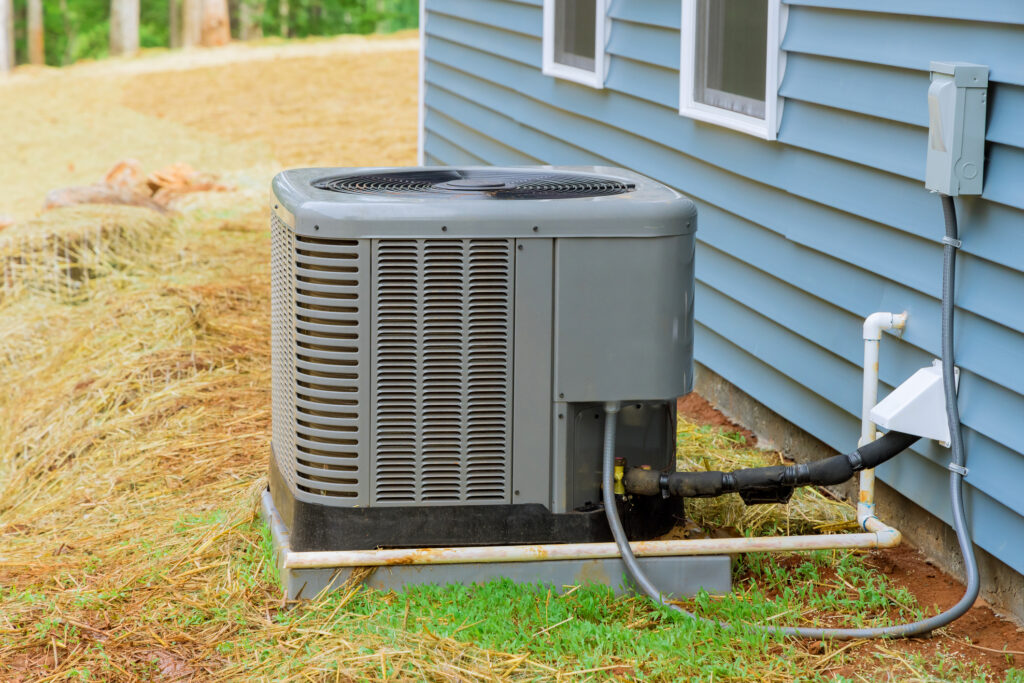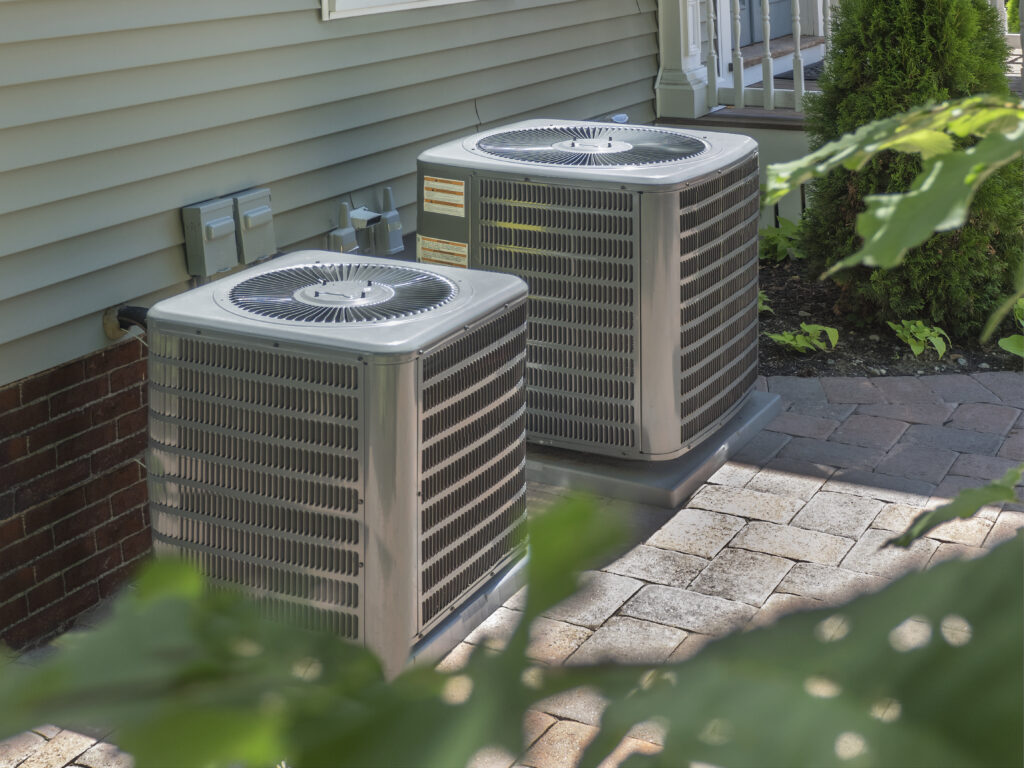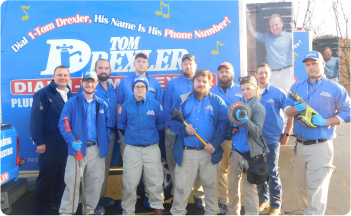What’s Really in Your Water?
Thanks to the Environmental Protection Agency, the drinking water of the United States is some of the cleanest on earth, and the water of Louisville, Kentucky is no exception. However, there’s probably no place on earth where the water is absolutely pure, which is a good thing. Absolutely pure water is probably not good to drink. Some scientists believe that it leaches minerals out of the body, so instead of a person drinking water, the water is drinking them. Most water has necessary minerals such as calcium and magnesium. These minerals also make the water taste good. Louisville, which gets its tap water from the Ohio River, adds chloramine as a disinfectant and fluoride for the health of the teeth. When the water leaves the plant, it is also more or less free of lead, or at least meets the standards set down by the EPA.
City Water and Well Water
The fact is even perfectly potable water has thousands of impurities and contaminants, most of which are harmless to health or present at such tiny amounts that they too are harmless. People who have private wells may feel the need to check what’s in their water by ordering a Water Safe kit that can check for contaminants. Well water can contain toxins that might not be able to be detected by the five senses. The water may also be tainted by iron or sulfur, which aren’t dangerous but make the water look and smell awful.
What may concern the home and business owners of Louisville who receive their water from the city is the hardness of the water. Louisville’s water, like the water in most of the United States, is moderately hard. This means it has 159 milligrams of calcium per liter of water.
Hard Water
Hard water may be good for the health, but it is not good for pipes or appliances that are dependent on freshwater. Over time, hard water lays down a layer of minerals in the pipes known as limescale. Though the Louisville Water Company claims that this layer is beneficial, if it becomes too thick it clogs pipes and can reduce the water pressure to a trickle. Scale also shortens the working lives of:
- washing machines
- dishwashers
- ice makers
- coffee machines
- water heaters
Hard water also makes detergents less effective. It causes a cheesy film when mixed with dishwashing detergent and lays hard-to-clean scum on shower stalls and bathtubs. Hard water dulls the bright colors of clothes and makes them wear out faster. It also leaves a residue on skin and hair and makes them look duller than they should as well. Hard water etches glasses, making them cloudy-looking.
About Water Filters
The answer to contaminants and hard water is a water filter system installed by our professionals at Tom Drexler Plumbing, Air and Electric. One type of filter is a water softener, which exchanges sodium ions in the water softener with calcium, magnesium and other ions in the water. The one caveat with this system is it might not be ideal for people who are on a sodium-restricted diet. In that case, the water softener can be connected to specific supply lines such as the bathtub, bathroom sink or washing machine. This is called point-of-use.
Reverse osmosis is another type of water filter and is known for removing a great many types of contaminants. It uses a membrane that blocks toxins and pathogens while allowing water molecules through. This filter can be connected to the point of entry. This is where the water comes into the house to service all of the fresh water supply lines. The big drawback of the reverse osmosis system was that it wasted a lot of water. Advances in technology allow reverse osmosis filters to waste much less water than they use to.
What’s Really in Your Water?
Thanks to the Environmental Protection Agency, the drinking water of the United States is some of the cleanest on earth, and the water of Louisville, Kentucky is no exception. However, there’s probably no place on earth where the water is absolutely pure, which is a good thing. Absolutely pure water is probably not good to drink. Some scientists believe that it leaches minerals out of the body, so instead of a person drinking water, the water is drinking them. Most water has necessary minerals such as calcium and magnesium. These minerals also make the water taste good. Louisville, which gets its tap water from the Ohio River, adds chloramine as a disinfectant and fluoride for the health of the teeth. When the water leaves the plant, it is also more or less free of lead, or at least meets the standards set down by the EPA.
City Water and Well Water
The fact is even perfectly potable water has thousands of impurities and contaminants, most of which are harmless to health or present at such tiny amounts that they too are harmless. People who have private wells may feel the need to check what’s in their water by ordering a Water Safe kit that can check for contaminants. Well water can contain toxins that might not be able to be detected by the five senses. The water may also be tainted by iron or sulfur, which aren’t dangerous but make the water look and smell awful.
What may concern the home and business owners of Louisville who receive their water from the city is the hardness of the water. Louisville’s water, like the water in most of the United States, is moderately hard. This means it has 159 milligrams of calcium per liter of water.
Hard Water
Hard water may be good for the health, but it is not good for pipes or appliances that are dependent on freshwater. Over time, hard water lays down a layer of minerals in the pipes known as limescale. Though the Louisville Water Company claims that this layer is beneficial, if it becomes too thick it clogs pipes and can reduce the water pressure to a trickle. Scale also shortens the working lives of:
- washing machines
- dishwashers
- ice makers
- coffee machines
- water heaters
Hard water also makes detergents less effective. It causes a cheesy film when mixed with dishwashing detergent and lays hard-to-clean scum on shower stalls and bathtubs. Hard water dulls the bright colors of clothes and makes them wear out faster. It also leaves a residue on skin and hair and makes them look duller than they should as well. Hard water etches glasses, making them cloudy-looking.
About Water Filters
The answer to contaminants and hard water is a water filter system installed by our professionals at Tom Drexler Plumbing, Air and Electric. One type of filter is a water softener, which exchanges sodium ions in the water softener with calcium, magnesium and other ions in the water. The one caveat with this system is it might not be ideal for people who are on a sodium-restricted diet. In that case, the water softener can be connected to specific supply lines such as the bathtub, bathroom sink or washing machine. This is called point-of-use.
Reverse osmosis is another type of water filter and is known for removing a great many types of contaminants. It uses a membrane that blocks toxins and pathogens while allowing water molecules through. This filter can be connected to the point of entry. This is where the water comes into the house to service all of the fresh water supply lines. The big drawback of the reverse osmosis system was that it wasted a lot of water. Advances in technology allow reverse osmosis filters to waste much less water than they use to.







